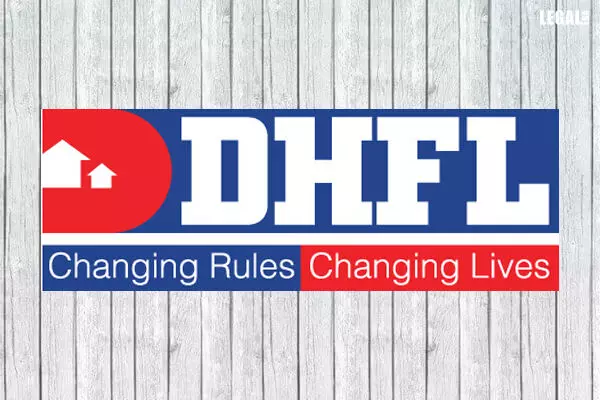- Home
- News
- Articles+
- Aerospace
- Artificial Intelligence
- Agriculture
- Alternate Dispute Resolution
- Arbitration & Mediation
- Banking and Finance
- Bankruptcy
- Book Review
- Bribery & Corruption
- Commercial Litigation
- Competition Law
- Conference Reports
- Consumer Products
- Contract
- Corporate Governance
- Corporate Law
- Covid-19
- Cryptocurrency
- Cybersecurity
- Data Protection
- Defence
- Digital Economy
- E-commerce
- Employment Law
- Energy and Natural Resources
- Entertainment and Sports Law
- Environmental Law
- Environmental, Social, and Governance
- Foreign Direct Investment
- Food and Beverage
- Gaming
- Health Care
- IBC Diaries
- In Focus
- Inclusion & Diversity
- Insurance Law
- Intellectual Property
- International Law
- IP & Tech Era
- Know the Law
- Labour Laws
- Law & Policy and Regulation
- Litigation
- Litigation Funding
- Manufacturing
- Mergers & Acquisitions
- NFTs
- Privacy
- Private Equity
- Project Finance
- Real Estate
- Risk and Compliance
- Student Corner
- Take On Board
- Tax
- Technology Media and Telecom
- Tributes
- Viewpoint
- Zoom In
- Law Firms
- In-House
- Rankings
- E-Magazine
- Legal Era TV
- Events
- Middle East
- Africa
- News
- Articles
- Aerospace
- Artificial Intelligence
- Agriculture
- Alternate Dispute Resolution
- Arbitration & Mediation
- Banking and Finance
- Bankruptcy
- Book Review
- Bribery & Corruption
- Commercial Litigation
- Competition Law
- Conference Reports
- Consumer Products
- Contract
- Corporate Governance
- Corporate Law
- Covid-19
- Cryptocurrency
- Cybersecurity
- Data Protection
- Defence
- Digital Economy
- E-commerce
- Employment Law
- Energy and Natural Resources
- Entertainment and Sports Law
- Environmental Law
- Environmental, Social, and Governance
- Foreign Direct Investment
- Food and Beverage
- Gaming
- Health Care
- IBC Diaries
- In Focus
- Inclusion & Diversity
- Insurance Law
- Intellectual Property
- International Law
- IP & Tech Era
- Know the Law
- Labour Laws
- Law & Policy and Regulation
- Litigation
- Litigation Funding
- Manufacturing
- Mergers & Acquisitions
- NFTs
- Privacy
- Private Equity
- Project Finance
- Real Estate
- Risk and Compliance
- Student Corner
- Take On Board
- Tax
- Technology Media and Telecom
- Tributes
- Viewpoint
- Zoom In
- Law Firms
- In-House
- Rankings
- E-Magazine
- Legal Era TV
- Events
- Middle East
- Africa
Supreme Court dismisses ED’s appeal against bail to former DHFL promoters in Yes Bank money laundering case

Supreme Court dismisses ED’s appeal against bail to former DHFL promoters in Yes Bank money laundering case
Notes that the brothers were not released on bail as they were then in CBI custody
The Supreme Court has dismissed a plea filed by the Enforcement Directorate (ED) challenging the Bombay High Court order granting bail to former Dewan Housing Finance Limited (DHFL) promoters Kapil Wadhawan and Dheeraj Wadhawan in a Yes Bank money laundering case.
A bench of Justice KM Joseph, Justice Hrishikesh Roy, and Justice BV Nagarathna stated, "The remand period will be calculated from the date of the magistrate remanding the accused. An accused becomes entitled to default bail if the charge sheet is not filed by the 61st or 91st day of the remand period."
The judges directed the 2021 pending petitions pertaining to the case be placed before a two-judge bench. While on 9 February, the top court reserved its verdict on ED’s appeal, on 23 February, it referred the case to a larger bench.
The question remained whether the day on which an accused was remanded to custody should be included while calculating the 60-day period for the grant of default bail. The issue arose during the hearing of ED’s appeal against a Bombay High Court order granting bail to the former promoters of DHFL.
In September 2020, the apex court had stayed the high court order granting bail to the promoters. It issued a notice to the accused on ED’s plea.
In August 2020, the high court granted bail to the Wadhawan brothers stating that mandatory default bail was the sequel to the non-filing of the charge sheet. It held that the ED failed to file its charge sheet in the case within the stipulated 60-day period.
Subsequently, the central probe agency filed a special leave petition before the apex court. It stated about not violating the procedure and had filed a part of the charge sheet through e-mail, a day before the 60-day period ended. (The charge sheet was filed in physical form by the ED on 13 July 2020).
As per Section 167(2) of the Code of Criminal Procedure, an accused can be detained for a maximum of 90 days for a crime punishable with death, life imprisonment or a sentence of over 10 years. If the investigation relates to any other offence, the accused can be detained for 60 days. If the investigative agencies do not complete their investigation within these time limits, the arrested person is entitled to ‘default bail.’
However, the Wadhawan brothers were not released on bail as they were then in CBI custody.
The two were arrested by the ED on 14 May 2020 under the provisions of the Prevention of Money Laundering Act, 2002. The charges were slapped after studying a CBI FIR filed in March in connection with the alleged suspicious loans granted by Yes Bank and the quid pro quo between its co-promoter Rana Kapoor and the Wadhawans.
The CBI and ED have maintained that between April and June 2018, Yes Bank invested around Rs.3,700 crores in short-term non-convertible debentures of DHFL.



